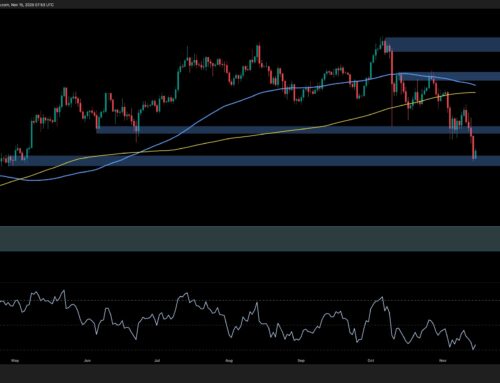What DoorDash’s 24% Drop Means for Investors After New Grocery Delivery Moves
November 15, 2025
-
Wondering whether DoorDash stock is really worth the price tag it has today? You are not alone, especially with so much recent buzz around the company’s growth and valuation.
-
Shares have lifted an impressive 21.3% year-to-date and 22.2% over the past year. However, the past month has seen a sharp dip of 24.1%.
-
Much of this volatility has been driven by news of DoorDash expanding its grocery delivery partnerships, as well as new features like express delivery aimed at boosting order frequency. These headlines have investors weighing whether the long-term growth opportunity is getting bigger or if optimism has run ahead of reality.
-
At a glance, DoorDash scores a 3/6 on our valuation checks, signaling it is undervalued in half of the key metrics we track. However, there is more than one way to estimate a company’s true worth. Let’s dig into the approaches investors use to value stocks like DoorDash, and why understanding these methods may be only the start of the story.
The Discounted Cash Flow (DCF) model is a method that estimates the value of a company by projecting its future cash flows and discounting them back to today’s value. This approach aims to determine what a business is really worth based on its ability to generate cash in the future.
For DoorDash, the model uses a 2 Stage Free Cash Flow to Equity methodology. Currently, the company reports Free Cash Flow (FCF) of $2.04 billion. Analysts supply cash flow estimates out to 2029, projecting FCF of $6.25 billion by then. Beyond these analyst forecasts, further annual projections up to 2035 are extrapolated using industry estimates. All values are given in US dollars.
Based on these projections, the resulting intrinsic value for DoorDash is $309.63 per share. Compared to where the stock is currently trading, this DCF-based valuation suggests the stock is 33.2% undervalued relative to its estimated fair value.
Result: UNDERVALUED
Our Discounted Cash Flow (DCF) analysis suggests DoorDash is undervalued by 33.2%. Track this in your watchlist or portfolio, or discover 879 more undervalued stocks based on cash flows.
The price-to-earnings (PE) ratio is a popular way to value profitable companies because it directly compares a company’s current share price to its per-share earnings. For businesses like DoorDash that generate positive earnings, the PE ratio distills investor expectations about future growth and profitability into a single, easy-to-read figure.
A fair PE ratio for any stock is influenced by how fast investors think the company will grow compared to its risks and industry peers. Generally, higher expected growth and lower risk justify a higher PE multiple. Slower growth and more uncertainty call for a lower ratio.
Currently, DoorDash trades at a PE ratio of 103.4x, which is significantly above both the Hospitality industry average of 21.1x and its peer group average of 33.0x. However, comparing only with industry or peer averages can be misleading since these groups may have different growth rates or risk profiles. The Fair Ratio, calculated by Simply Wall St at 46.7x for DoorDash, aims to address this.
The Fair Ratio is more precise than simple peer or industry comparisons because it incorporates DoorDash’s specific earnings growth, risk profile, margins, industry segment, and company size. This tailored approach gives a fairer sense of whether the current valuation fits the company’s unique fundamentals.
When we compare DoorDash’s current PE of 103.4x with the Fair Ratio of 46.7x, the stock appears significantly overvalued based on this metric alone.
Result: OVERVALUED
PE ratios tell one story, but what if the real opportunity lies elsewhere? Discover 1406 companies where insiders are betting big on explosive growth.
Earlier we mentioned that there is an even better way to understand valuation, so let’s introduce you to Narratives. A Narrative is simply your story or perspective behind a company, pairing your assumptions about DoorDash’s future revenue, earnings, and margins with the fair value you believe is justified.
Narratives help tie the company’s story to a financial forecast and, ultimately, a fair value estimate. Far from a complex tool, Narratives are easy to create and follow within Simply Wall St’s Community page, where millions of investors share and update their perspectives in real time.
What makes Narratives powerful is how they enable you to directly compare your calculated Fair Value to the current share price, making it easier and more transparent to decide when to buy or sell. If fresh news, analyst forecasts, or earnings reports drop, your Narrative and its fair value update automatically, keeping you ahead of the curve.
For example, among the Community’s Narratives for DoorDash, some investors take a bullish view, forecasting strong revenue growth with a price target of $360, while others are more cautious and see fair value as low as $205. Narratives make it easy to see and share these differing viewpoints and to check which forecasts are playing out in the real world.
Do you think there’s more to the story for DoorDash? Head over to our Community to see what others are saying!
This article by Simply Wall St is general in nature. We provide commentary based on historical data and analyst forecasts only using an unbiased methodology and our articles are not intended to be financial advice. It does not constitute a recommendation to buy or sell any stock, and does not take account of your objectives, or your financial situation. We aim to bring you long-term focused analysis driven by fundamental data. Note that our analysis may not factor in the latest price-sensitive company announcements or qualitative material. Simply Wall St has no position in any stocks mentioned.
Companies discussed in this article include DASH.
Have feedback on this article? Concerned about the content? Get in touch with us directly. Alternatively, email editorial-team@simplywallst.com
Terms and Privacy Policy
Search
RECENT PRESS RELEASES
Related Post




